#Wildfires
Explore tagged Tumblr posts
Text
Wildfires. It's been dry as tinder already this year here in Colorado, and we usually have several wildfires of varying sizes. Couple that with the sweeping cuts to our forestry service, BLM, and firefighting force and backdrop of services....we're all pretty worried. (also, there's a super-volcano one state away, which I'm not entirely sure won't be on the 2025 Bingo card at this rate)
I'm really curious about this!! in aotearoa, every classroom I was in growing up had posters up on how to respond to an earthquake. "drop, cover, hold" was drilled into me from a very young age. I experienced a few growing up, but they were mild because I don't live in areas where they are more extreme. One of our major cities, christchurch/ōtautahi, gets hit by earthquakes very frequently. if you look at a global seismic hazard map, aotearoa is fully lit up in the colour indicating high hazard chance. wild!!!
for reference, in the UK (similar size country) there are around 20-30 noticeable earthquakes per year. in aotearoa, that number is around 100-250!
6K notes
·
View notes
Text


Source

Source

Source


Source

Source
Historic wildfires blaze through LA months after the Democratically-run city cut fire service funds.
News headlines rhetorically ask us to consider what happens when CA inmates - working as firefighters for roughly $6 per day - cannot contain unprecedented fires.
Billionaires drain the already water-starved state of its supply as hydrants dry up when needed most.
This system has to go.
#politics#us politics#government#the left#progressive#current events#news#wildfires#los angeles#la fires#prisons#labor#capitalism#eat the rich#climate change#climate justice#environment#important#activism#forest fires#democrats#California#wildfire
15K notes
·
View notes
Text

#wildfires#la fires#palisades fire#climate change#climate crisis#california wildlife#fuck capitalism#capitalism kills#we live in hell#socialism now#abolish capitalism#peoples union#unionize everything#eaton fire#hurst fire#lidia fire#woodley fire#sunset fire#kenneth fire
8K notes
·
View notes
Text

While Trump is trolling Canada about annexing it, Canadians are in Los Angeles tonight dropping water on the Palisades fire. He’s a disgrace.
6K notes
·
View notes
Text

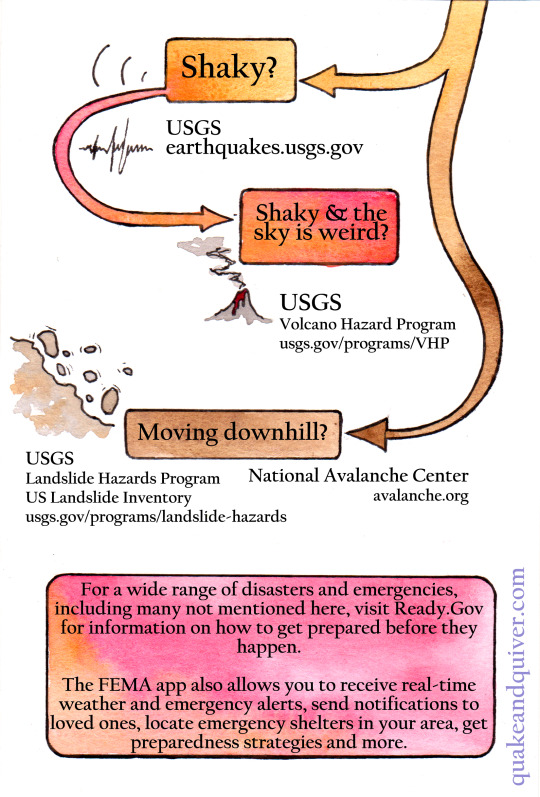
Noticed something a little funky in the world around you and want to figure out what's up? Especially if there might be something you ought to be doing about it? Not sure what information sources to trust these days? If you're in the US, federal agencies like NOAA, USGS, EPA and more collect massive amounts of scientific data every day, much of which is publicly available online - if you know where to look.
A PDF version with clickable links is available for free on my itchio page (quakeandquiver); I'll add a direct link in a reblog.
#wildfires#earthquakes#volcanoes#flooding#natural hazards#disasters#sketchpad#risk comm#environment#disaster preparedness#federal government#federal resources#get your taxpayer dollars' worth
33K notes
·
View notes
Text
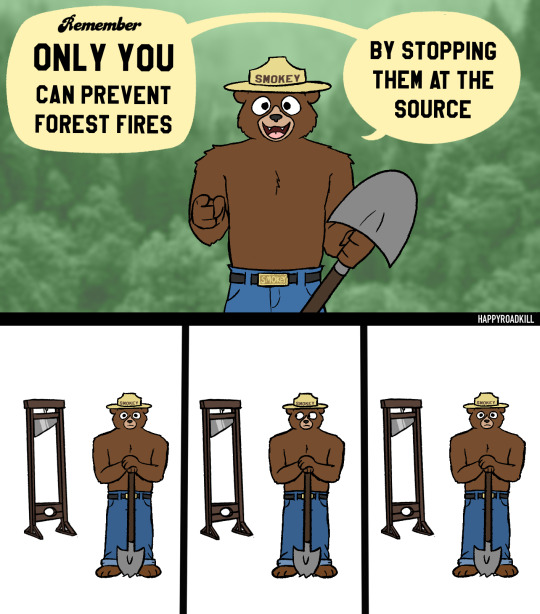
what did he mean by this
#comic#art#cartoon#environment#wildfires#wildfire smoke#solarpunk#politics#sociology#east coast#artists on tumblr#smokey the bear
24K notes
·
View notes
Text
If you're in an area that is suffering from wildfire polluted air, I just saw this on Twitter:
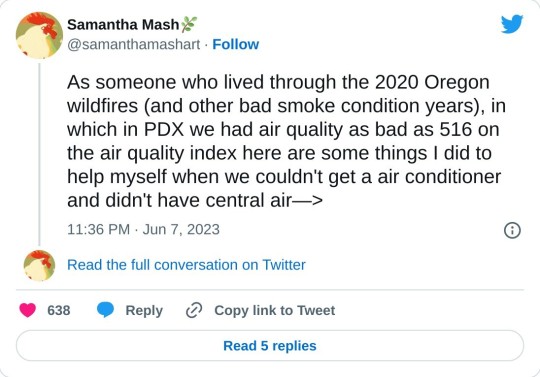








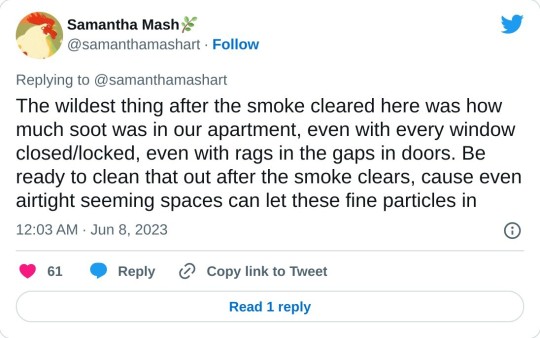
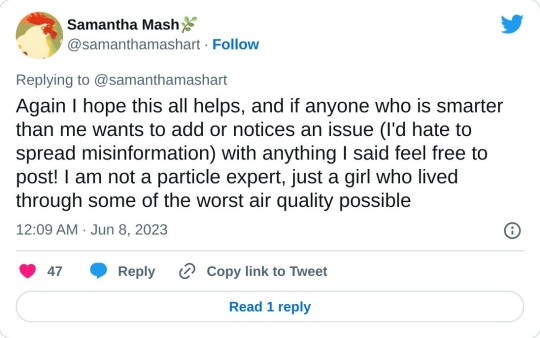
Bonus:

Here's a site I found that can tell you how to make these:
Edit: There have been some extra pointers (about open sources of water in the home, and I believe some other things) in the reblogs, so I highly recommend taking a look at the notes of this post!
Also: Cloth masks are NOT sufficient. Use KN95s or N95s!
#hepa filter#diy air cleaner#wildfires#new york#wildfire safety#samantha mash#(I can't believe i forgot to put her in the tags!)
18K notes
·
View notes
Text
Hi! Just wanna raise some awareness here because South America is on fucking fire and I need to see more people talking about this.

Source: RSOE EDIS x
Im just going to talk about the ones i'm closest to, but if you know about these fires, feel free to add in the reblogs!
Chile
In Chile there's (up to Feb 5) 160 wild fires, of which 40 are still trying to be controlled by authorities. The president, Gabriel Boric, has declared State of Emergency in the whole country, and theres a Red Alert Code in most part of the country.
Isla de Chiloé, Southern Chile (900 km away from Santiago de Chile)
This is a (recently controlled) fire that lasted a week, but many neighborhoods were burnt to the ground.
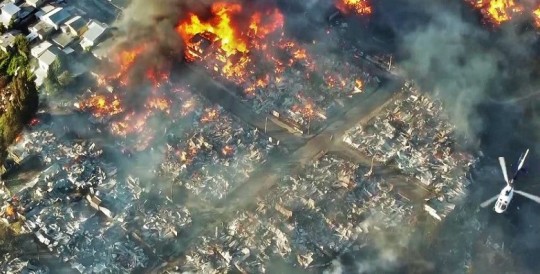
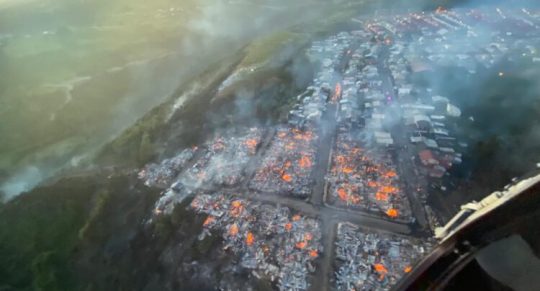
The whole South is in red alert for constant sudden fires that spread quickly due to the lack of rain and the elevated temperatues in the zone. Just today, two fires had to be controlled in the main land next to this island, and more are being reported in the Los Lagos region. This is added to the "controlled" intentional fires that farmers make to clean their fields of old crops along the Central-South parts of the country, mostly surrunding the main route, Ruta 5, that connects the whole country, thus making it hard to see and breathe because of the smoke. (flashnews, most of them get out of control quickly.)
Valparaiso/Viña del Mar, Central Chile (100 km away from Santiago de Chile)
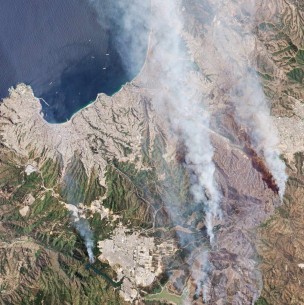
A fire that started on Friday 2nd and grew exponentially because of the wind and the dry, hot climate. More than 100 people are dead, with 70 unrecognized bodies and other 400 that have dissapeared. At least 30000 people that have lost everything to the fire.
There's massive evacuations from this and the neighboring city, Viña Del Mar.
This is said to be the second most deadly fire in the century, surpased by Australia in 2009.
45000+ hectares that include land and neighborhoods have been burnt down.
I could go on about this one, so more info here and here
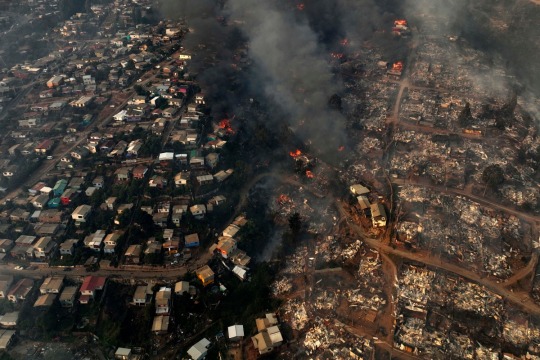
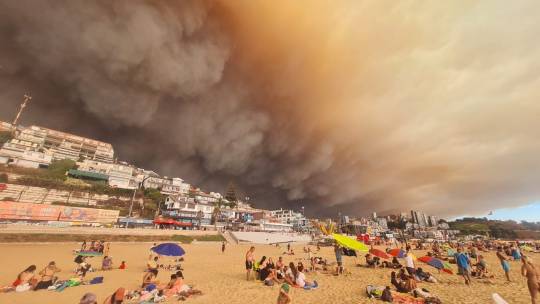
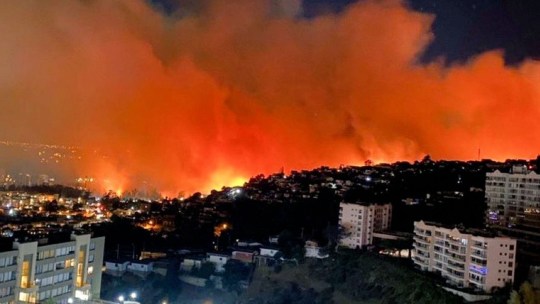
Argentina
Parque Los Alerces (Esquel), Chubut
The fire strarted on the 25th January, and the climate has made it hard to contain. 3000 hectares of native forest have been burnt to teh ground. It is now growing in the direction of the nearest city, Esquel. Theres been evacuations between yesterday and today (4 and 5th Febuary)
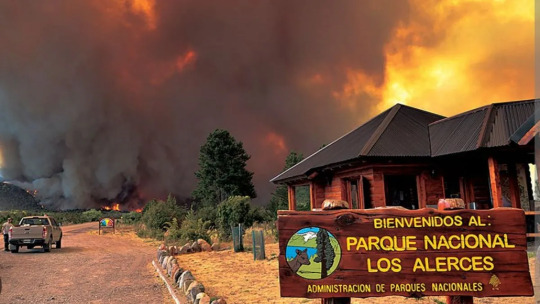
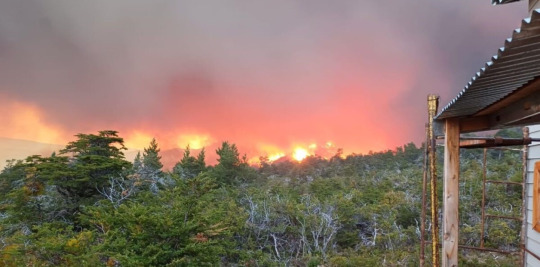
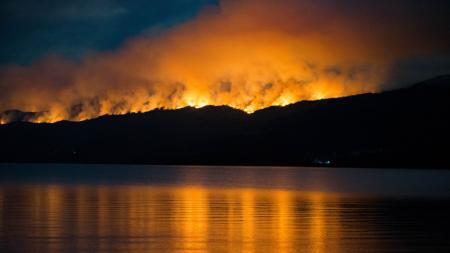
Parque Nahuel Huapi (Bariloche), Río Negro
The reason why im writing this. The city woke up today covered in smoke after a wildfire developed yesterday during the night. The reason? A fireplace that was not turned off in a place where people cannot disembark and can only be reached via boats.
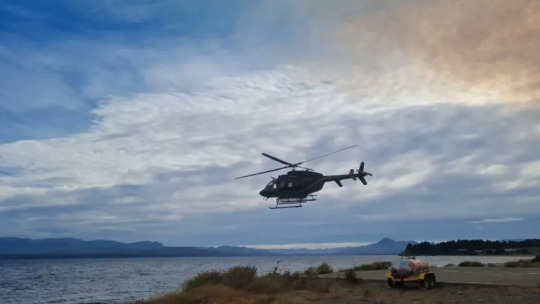
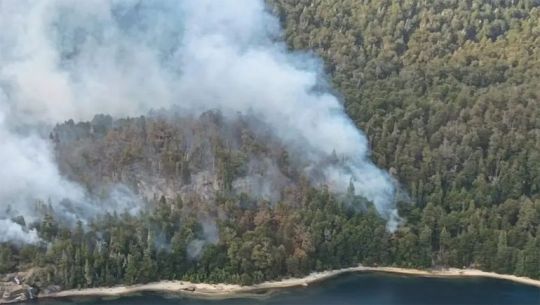
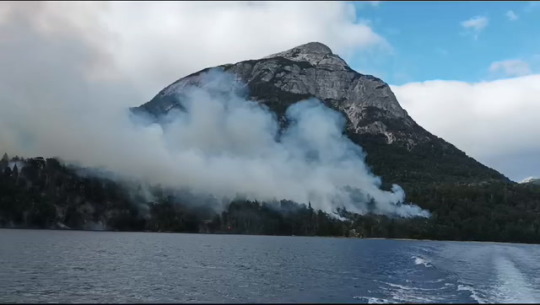
As of now, there's not much information about the fire but hopefully the firefighters will be able to contain it before it reaches Tronador Mountain, where an ancient glaciar is.
...which leads me to the other point i wanted to talk about.
Firefighters
They volunteer to do this job.
In Argentina and Chile, firefighting is not rewarded with a salary, and most of the times they dont even have full firehouses to stay in. These people are at their houses, ready to jump into action and run to the station the second the alarm goes off.
They are neighbors, people that risk their lives and run into danger willingly, just because they want to help the community.
I felt the need to give a shout-out to these people and say:
Don't be a fucking dick, don't start fires in the woods unless it's an approved place, and if you do, TURN IT OFF.
Pour abundant water on it, and do not stop when you don't see any more flames.
Keep pouring water until the ashes don't burn/feel like room temperature in your hand if you put it 10 cm away from it, and even then, pour some more just to be sure.
No heat and no smoke mean a safely extinguished fire.
Save lives and forests.
#dont even get me started on the denial of climate change from my president#didnt wanna get political here#argentina#chile#argieposting#argieblr#soff speaks#wildfires
6K notes
·
View notes
Text
and by the way let’s not forget that almost 400 of the people currently fighting the fires in southern california are inmates, who comprise up to 30% of the state’s wildfire forces and are incentivized to sign up for this perilous job with slightly higher wages (quote from the above link: “when responding to disasters, they may earn $26.90 over a 24-hour shift”); and that a ballot measure to end prison slave labor was defeated during last november’s election.
2K notes
·
View notes
Text

#republicans are domestic terrorists#Republicans lie about everything#republican assholes#maga morons#crooked donald#traitor trump#los angeles#wildfires#Trump’s lies matter
1K notes
·
View notes
Text



Source

#housing#housing crisis#la#fires#wildfires#California#los angeles#politics#us politics#government#eat the rich#capitalism#end capitalism#current events#news#twitter post
3K notes
·
View notes
Text
It's sick how obvious this is

#donald trump#maga 2024#us politics#fuck maga#fema aid#wildfires#california fires#fema compliance#trump policies#natural disasters#oligarchy#climate action#climate crisis#climate change#climate catastrophe
996 notes
·
View notes
Text

🚨BREAKING: California Governor Gavin Newsom just released a new website to combat misinformation being spread about the wildfires in LA. This is huge. Please rely on this website and its accurate information—not Donald Trump and Elon Musk.
934 notes
·
View notes
Text
"Amid record-high temperatures, devastating disasters, and the resulting climate anxiety that comes with them, it can be easy to give in to despair.
The resounding question of “does this even matter?” likely echoes on a loop, every time you toss an item in the recycling bin, or call your elected officials for the umpteenth time.
But according to research from the University of California San Diego’s School of Global Policy and Strategy, public outcry can indeed lead to significant environmental action — even when public officials are openly hostile to climate-forward policies.
Their paper, titled “Going Viral: Public Attention and Environmental Action in the Amazon,” will soon be published in the Journal of the Association of Environmental and Resource Economists. It focuses on the “unprecedented” public scrutiny following forest fires in the Brazilian Amazon in August of 2019.
These fires occurred soon after Jair Bolsonaro became Brazil’s president, after a staunchly anti-environmental campaign.
But after analyzing both media coverage and international pressure towards Brazil’s federal government, the researchers found that the increased public attention resulted in a 22% decrease in fires in the country’s Amazon Rainforest.
This, in turn, translated into the avoidance of an estimated 24.8 million tons of CO2 emissions.
“Our research underscores the significant role that public attention and media coverage can play in influencing local environmental policies and actions,” the study’s coauthor Teevrat Garg, said in a statement...
“The 2019 surge in attention led to immediate governmental responses, which contributed to the notable decrease in fires,” he added.
To come to these conclusions, the researchers compared fire activity in Brazil with that in Peru and Bolivia, countries that did not receive the same amount of public pressure, though typically still have the same level of fire activity per square kilometer."
-via GoodGoodGood, October 4, 2024
#wildfires#amazon#amazon rainforest#climate change#brazil#bolsonaro#south america#climate research#environmental news#good news#hope
965 notes
·
View notes

